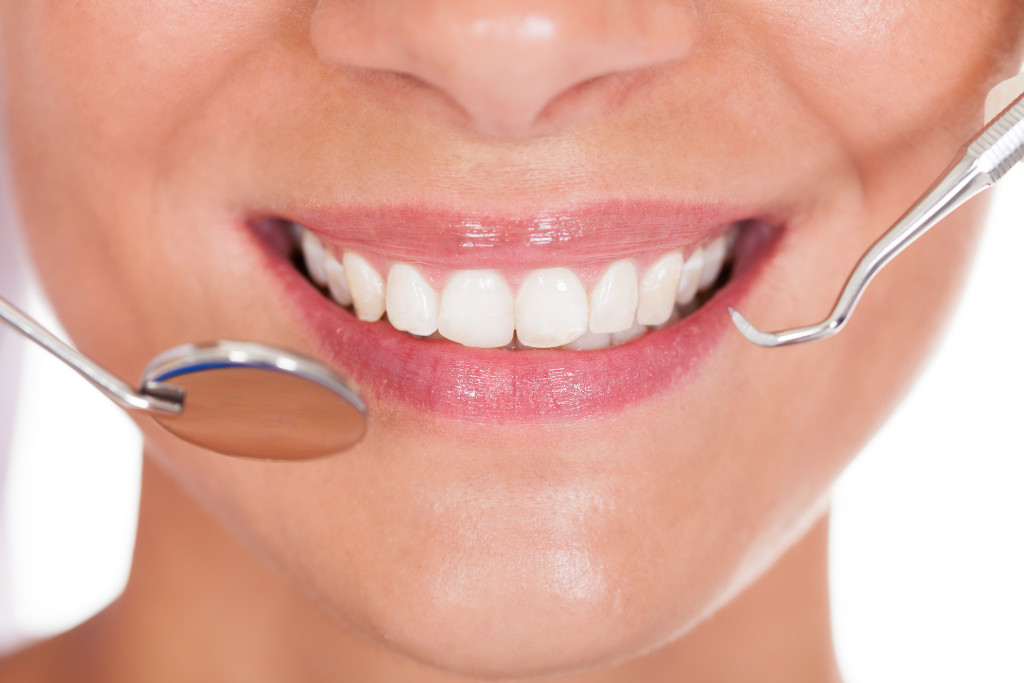- Brushing and flossing twice daily is essential to maintain good oral health, while regular dental check-ups help detect potential problems.
- Choose the right toothbrush and toothpaste approved by the American Dental Association (ADA) to optimize your dental hygiene routine.
- Professional teeth cleanings remove plaque and tartar buildup from your teeth and gums, helping you avoid cavities and gum disease.
- Dentists generally recommend scheduling a check-up and professional cleaning every six months, but this may vary depending on individual needs.
- Preventive measures such as using fluoride toothpaste or obtaining a dental sealant can help avoid costly treatments.
A healthy and beautiful smile is an asset that not only adds to your confidence but also enhances your overall well-being. However, maintaining oral health can be quite a task, especially when unaware of the proper techniques and products. With so many dental care products available, choosing the one that suits your needs can be overwhelming.
Dental care is essential for keeping your teeth and gums healthy and maintaining good overall health. Poor oral health can lead to a variety of medical conditions, such as heart disease, diabetes, and respiratory infections. Regular brushing, flossing, and dental check-ups help prevent dental problems and maintain good oral hygiene.
This blog will walk you through simple steps that will help you achieve a lifelong beautiful smile.
Basics of Dental Care

Good oral hygiene is the foundation of healthy teeth and gums. It is essential to understand dental care basics to maintain good oral health. Regular brushing and flossing are vital for removing food particles and plaque from your teeth while visiting the dentist every six months helps prevent dental problems and detect them early.
Choosing the Right Toothbrush and Toothpaste
The right toothbrush and toothpaste can make a significant difference in maintaining good oral health. Choose a toothbrush with soft bristles and the right size and shape to fit your mouth comfortably. Look for toothpaste that contains fluoride and has been approved by the American Dental Association (ADA).
Proper Brushing and Flossing

Brushing and flossing are two essential steps in maintaining good oral hygiene. Brush your teeth twice a day for at least two minutes using a circular motion, and make sure to reach all areas of your mouth. Floss at least once daily to remove food particles and plaque between your teeth and below the gum line.
Using Mouthwash and Dental Rinses
Mouthwash and dental rinses can help kill bacteria and freshen your breath. However, they should not be a substitute for brushing and flossing. Make sure to choose products approved by the ADA and follow the instructions for use.
Visiting the Dentist: Regular Check-Ups and Cleanings
Regular dental visits are essential to maintaining good oral health; prevention is always better than treatment. Early on, regular dental check-ups can help you detect potential oral health problems, such as gum disease, tooth decay, or even oral cancer.
In addition to examining your teeth and gums, your dentist will also perform a comprehensive cleaning to remove any buildup of plaque or tartar. This will help prevent further damage to your teeth, gums, and overall health.
Recommended Frequency for Dental Visits
Most dentists recommend you schedule a check-up and professional cleaning every six months. However, the frequency of your visits may depend on your individual oral health needs.
For example, if you have a history of gum disease or other dental problems, you may need to schedule more frequent visits to stay on top of your oral health. Your dentist will work with you to determine how often you should schedule visits based on your unique needs.
Professional Teeth Cleaning and Its Benefits
A professional teeth cleaning involves removing plaque and tartar buildup from your teeth and gums. This process can help you avoid cavities, tooth decay, and gum disease. In addition to improving your oral health, regular teeth cleaning can also help improve your overall health.
Studies show that oral health is closely linked to systemic health, and poor oral hygiene can increase your risk of heart disease, stroke, diabetes, and pregnancy complications.
Addressing Dental Concerns and Preventive Measures
Discussing your oral health with your dentist is essential if you have any concerns about your oral health. They can evaluate your oral health and provide recommendations for preventive measures to help you avoid dental problems in the future.
For instance, if you’re at risk for tooth decay, your dentist may advise you to use fluoride toothpaste or obtain a dental sealant. Preventive measures can help you avoid costly and time-consuming procedures in the future and help you maintain optimal oral hygiene.
Preventing Common Dental Problems
Dental problems such as tooth decay, cavities, and gum disease can be prevented by taking good care of your teeth and gums.
Tooth Decay and Cavities
Tooth decay and cavities are caused by plaque buildup on the teeth. Brushing and flossing regularly, reducing sugar intake, and visiting the dentist regularly can help prevent tooth decay and cavities.
Preventing Gum Disease
Gum disease is caused by a buildup of plaque on the gums. Brushing, flossing, and visiting the dentist regularly can help prevent gum disease. In addition, maintaining good overall health, such as avoiding smoking and eating a balanced diet, can also help prevent gum disease.
Managing Tooth Sensitivity
Tooth sensitivity is a common problem that can cause discomfort when consuming hot or cold foods. Using toothpaste designed for sensitive teeth, avoiding acidic foods and drinks, and using a soft toothbrush can help manage tooth sensitivity.
Dealing With Bad Breath
Bad breath is often caused by poor oral hygiene or underlying medical conditions. Brushing, flossing, and using mouthwash can help prevent bad breath. If bad breath persists, consult your dentist to rule out any underlying medical conditions.
Maintaining good oral hygiene is essential for achieving a lifelong beautiful smile. Brushing, flossing, and visiting the dentist regularly are simple steps to help prevent dental problems and maintain good oral health.
Choosing the right dental care products and following the proper techniques can make a significant difference in achieving a healthy and beautiful smile.






